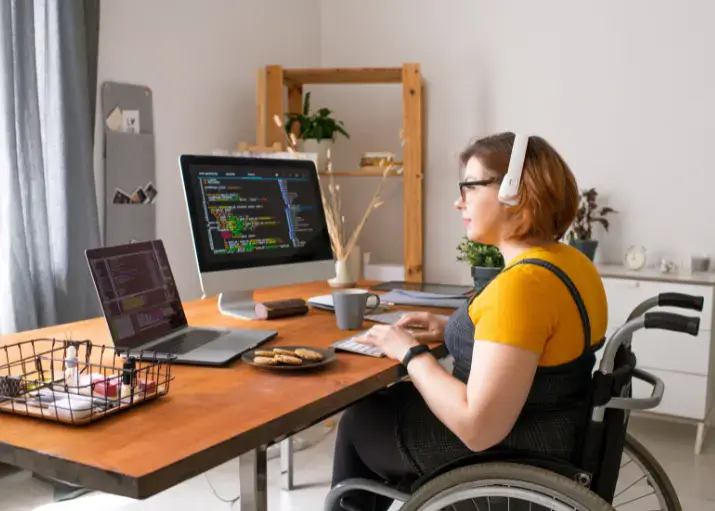Disability-Owned Business Enterprise (DOBE)
What is a DOBE?
A disability-owned business enterprise, often referred to as a DOBE, is a business that is at least 51% owned, operated, and controlled by one or more individuals with a disability.
They include, but are not limited to:
- ADHD
- AIDS
- Alcoholism
- Alzheimer’s
- Amyotrophic Lateral Sclerosis (ALS) (Lou Gehrig’s Disease)
- Anxiety
- Asthma
- Auditory Processing Disabilities
- Autism
- Autism Spectrum
- Bipolar
- Bleeding Conditions
- Blindness or Low Vision
- Brain Injuries
- Burn Injuries
- Cancer
- Cerebral palsy
- Chronic Fatigue Syndrome
- Chronic Pain
- Complex Regional Pain Syndrome (CRPS)
- Complications from Pregnancy
- Cumulative Trauma Conditions
- Depression
- Diabetes
- Dwarfism / Little Person
- Dystonia
- Eating Disorders
- Epilepsy
- Fibromyalgia Syndrome
- Fragrance Sensitivity
- Graves’ Disease
- Guillain-Barré Syndrome
- Hashimoto’s Disease
- Hearing or speech disabilities
- Heart Conditions
- Hepatitis
- HIV Infection
- Intellectual / Cognitive Disabilities
- Latex Allergies
- Learning Disabilities
- Lupus
- Major depressive conditions
- Marfan Syndrome
- Mental Health conditions
- Migraine Headaches
- Mobility Impairments requiring the use of mobility devices
- Multiple Chemical Sensitivity or Environmental Illness
- Multiple sclerosis
- Muscular dystrophy
- Myasthenia Gravis
- Obsessive-compulsive disorder
- Orthopedic impairments
- Paralysis
- Parkinson’s
- Partial or Completely Missing Limbs
- Personality Disorders
- Post-traumatic stress disorder (PTSD)
- Reflex Sympathetic Dystrophy (RSD)
- Schizophrenia
- Sickle Cell Anemia
- Skin Disorders
- Sleep Disorders
- Speech-Language Impairment / Stuttering
- Spinal Cord Injuries or Conditions
- Thyroid gland disorders (Hyper / Hypothyroidism)
- Tourette Syndrome
- Tuberculosis
- Vertigo
- Wheelchair / Scooter users





